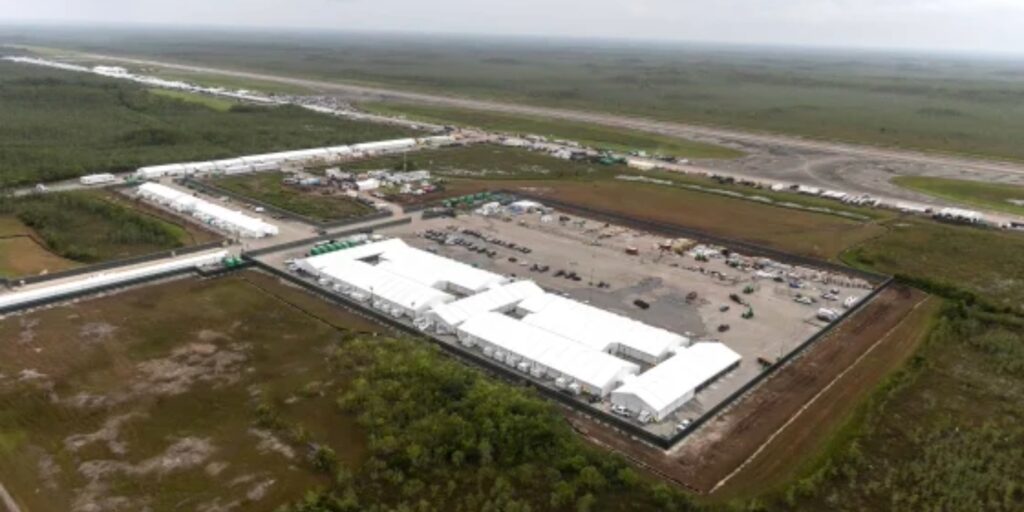Florida’s embattled immigrant detention center, nicknamed “Alligator Alcatraz” for its isolated location deep in the Everglades, is being dismantled after a federal judge ruled it was built and operated in violation of environmental law. The abrupt shutdown marks a major setback for both state and federal immigration enforcement efforts and leaves Florida taxpayers facing massive financial losses.
U.S. District Judge Kathleen M. Williams issued the order in response to a lawsuit filed by environmental groups and the Miccosukee Tribe, who argued the facility’s fast-tracked construction bypassed requirements under the National Environmental Policy Act (NEPA). The ruling gives the state 60 days to vacate detainees and remove key structures, citing the absence of necessary environmental reviews in one of the nation’s most fragile wetland ecosystems.
Florida had contended that NEPA did not apply since the project was built with state funds on state-owned land. But the court found otherwise, pointing to the detention center’s direct role in federal immigration policy and its housing of federal detainees as grounds for compliance with federal law.
The financial fallout is steep. Florida already poured $218 million into converting a remote training airport into the high-security facility, and public spending data reviewed by the Associated Press shows contracts totaling more than $405 million. According to court filings, the state now expects to lose nearly all of that initial $218 million investment, plus an additional $15–20 million to dismantle infrastructure. Should Florida prevail on appeal, reinstalling those structures would cost another $15–20 million.
Meanwhile, detainees are being transferred to other facilities. The Department of Homeland Security has confirmed the relocations and is joining Florida in appealing the ruling, warning that the closure will interfere with national deportation and enforcement goals.
Governor Ron DeSantis blasted the decision, labeling Judge Williams an “activist judge,” while the Trump administration also denounced the injunction. Both Florida and the federal government have petitioned the 11th U.S. Circuit Court of Appeals for an emergency stay to keep the center open during the appeal. Backing them are 22 Republican-led states, whose attorneys general filed a brief arguing the court exceeded its authority.
The ruling comes just two months after the detention center opened amid political fanfare and a high-profile visit from President Donald Trump. Now, instead of being a symbol of hardline immigration policy, “Alligator Alcatraz” has become a cautionary tale—an expensive, short-lived project undone by legal challenges, political battles, and environmental law.



